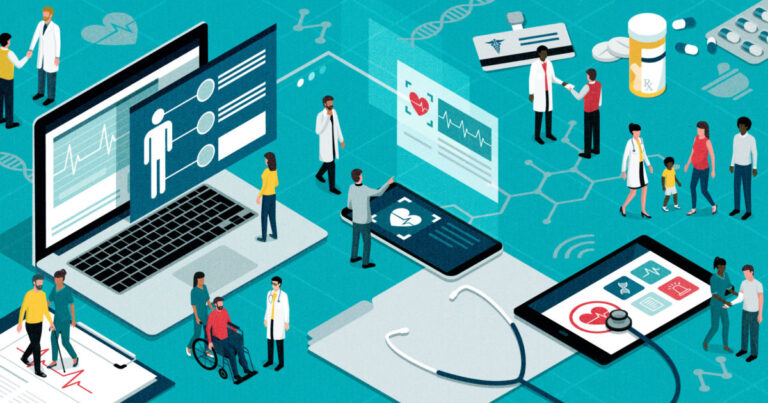
Administrative Task Automation:
Physicians often spend a significant amount of time on administrative tasks, such as documentation, appointment scheduling, and paperwork. AI-driven automation can streamline these processes by automatically populating patient records, generating notes, and managing scheduling. By reducing administrative burdens, physicians can focus more on patient care and utilize their expertise effectively.
Clinical Decision Support:
AI algorithms can analyze patient data, medical literature, and clinical guidelines to provide intelligent clinical decision support. By presenting relevant information and treatment recommendations at the point of care, AI-driven systems assist physicians in making more informed decisions efficiently. This reduces the time spent on researching and reviewing medical information, allowing physicians to provide accurate and timely care.
Efficient EHR Utilization:
Electronic health records (EHRs) are crucial but often time-consuming tools for physicians. AI-driven automation can improve EHR utilization by extracting relevant information from patient records, organizing data, and presenting it in a concise manner. Physicians can quickly access essential patient information, saving time spent on searching through extensive records and enhancing productivity during patient encounters.
Automated Data Analysis:
AI algorithms can analyze large volumes of patient data, such as lab results, imaging reports, and genetic information, to identify patterns, trends, and potential risks. By automating data analysis, physicians can efficiently gather insights for diagnosis, treatment planning, and monitoring patient progress. This saves time compared to manual data analysis, enabling physicians to focus on critical decision-making.
Streamlined Communication:
AI-driven automation facilitates efficient communication among healthcare teams. By automating routine communication tasks, such as sending notifications and sharing test results, physicians can spend less time on administrative communication and more time on direct patient care. Streamlined communication also enhances collaboration and coordination, leading to improved overall workflow efficiency.
Personalized Medicine:
AI algorithms can analyze individual patient characteristics, including genetics, lifestyle, and medical history, to recommend personalized treatment plans. By automating the process of tailoring treatment options based on specific patient factors, physicians can save time on trial-and-error approaches. They can focus on implementing the most effective and personalized treatments for their patients, optimizing the value of their time and improving patient outcomes.
Overall, AI-driven automation in healthcare optimizes the value of a physician’s time by reducing administrative burdens, providing clinical decision support, improving EHR utilization, automating data analysis, facilitating streamlined communication, and enabling personalized medicine. By leveraging technology to automate routine tasks and provide intelligent support, physicians can dedicate more time to direct patient care, complex decision-making, and enhancing overall healthcare quality.